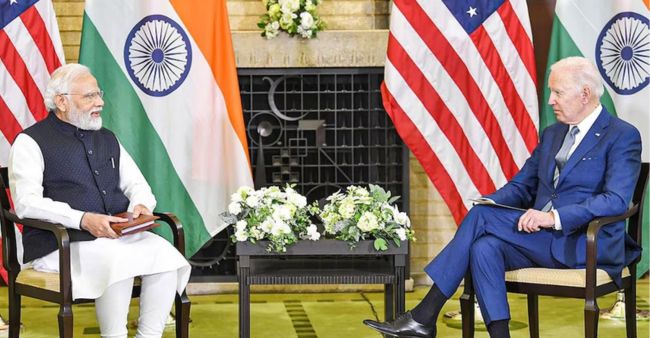Prime Minister Narendra Modi’s impending visit to Washington to confer with US President Joe Biden and address a joint session of both Houses of Congress has the potential to finally elevate India-US relations to the level that the challenges of the 21st century have made inevitable. It must be said that the Biden White House has shown wisdom and fortitude in resisting pressure from junior levels in the State Department in particular that are prone towards accepting the policy recommendations made by those expert backseat drivers, the New York Times and the Washington Post, both of which have become severely diminished versions of their former selves. Their clinging on to the fantasy that the world is still in the midst of Cold War 1.0 between the USSR and the US has resulted in editorial policies that are reminiscent of those UK and US newspapers in the 1930s that saw Stalin’s USSR as the foe needing to be vanquished, of course with help from that somewhat loquacious Hitler and the country he ruled over, Germany. In an era when the pivot of history has shifted from the Atlantic to the Indo-Pacific and from Europe to Asia, the New York Times and Washington Post editorial content resemble a Ford Model T in the 1990s. Useful in their time, but a traffic hazard now. Both have unwittingly signed on to the Sino-Wahhabi and Sino-Russian campaign seeking to distance the United States from India. A well-funded, expertly crafted campaign that is both mendacious and vicious in tone has been launched against the Modi visit, but the White House and the Congressional leadership has held firm on its plans to welcome the elected Head of Government of the world’s most populous country that also happens to be a democracy. Both the Republican as well as the Democratic Party leadership understand the importance of strengthening rather than jettisoning the US-India partnership, the New York Times, the Washington Post and other outlets opposed to close ties between Biden and Modi notwithstanding.
Much of the malaise that has afflicted US policy comes from lower-level staffers who swear by the New York Times and the Washington Post, and who attend the many enchanting soirees that are held by “useful idiots” of the Sino-Wahhabi lobby. It was this group that generated a flurry of abuse against Crown Prince Mohammad bin Salman of the Kingdom of Saudi Arabia, the consequences of which have been predictable. With events such as the 2021 surrender of Afghanistan to the Taliban taking place, doubts about US reliability have been replaced with the certainty in Riyadh that Washington is unhelpful in a crisis. As a consequence, the Kingdom has moved away from the US to become closer to the other superpower, China. The CCP has no qualms about assisting both sides in a conflict, so that whether it is Heads or Tails, it is the PRC that wins at the expense of those trusting their future to it. Slowly, however, despite the immense cloud of disinformation about its enemies and misinformation about its intentions, more and more policymakers in Delhi and in Washington are becoming aware of where the actual menace comes from. Spin has the capacity to create temporary perceptions that are distant from reality, but finally hard facts will prevail in the creation of the narrative. Despite the immense hype made by CNN, BBC and other Cold War 1.0 relics, the fact that Ukraine is being drained of its vitals and that the so-called Spring Offensive is but a fiction has become clear.
Unfortunately for President Biden, he has filled the top drawer of his administration with those who remained chained to the past, yet it is cause for optimism that he has adopted a futuristic course of action in extending a warm welcome to Prime Minister Modi. What is needed is for the US and India to agree on a partnership for peace and prosperity that is designed to deter aggression and promote growth in both countries. The 1971 Indo-Soviet treaty ensured that the US and China kept away from
MDN

